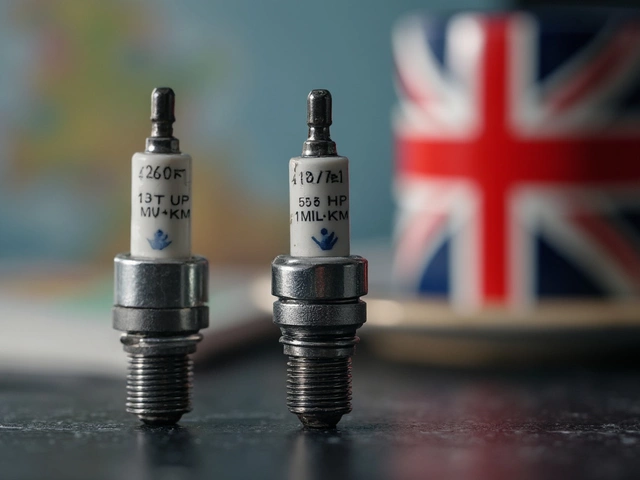Synthetic Oil: What It Is and Why It Matters for Your Car
Ever wondered why some drivers swear by synthetic oil while others stick to cheap conventional brands? The difference isn’t just a marketing gimmick. Synthetic oil is engineered to handle extreme temperatures, reduce engine wear, and keep fuel consumption low. In simple terms, it works harder and lasts longer than regular oil, which means fewer trips to the garage and smoother rides.
Key Benefits You’ll Notice Right Away
First up, temperature control. Synthetic blends stay fluid in icy weather and keep their thickness when the engine heats up, so you get reliable lubrication from start‑up to shut‑down. Second, wear protection. The uniform molecular structure slides over metal surfaces with less friction, cutting down on abrasion and extending engine life. Third, fuel efficiency. Because the engine doesn’t have to fight thick oil, you often see a 1‑2% boost in miles per gallon. Finally, longer change intervals. Many manufacturers rate synthetic oil for 10,000‑15,000 miles, compared to 5,000‑7,500 miles for conventional oil.
How to Pick the Right Synthetic for Your Vehicle
Start with your owner’s manual. It lists the required viscosity (like 5W‑30) and any performance specs such as ACEA or API ratings. Match those numbers, then decide between full synthetic and synthetic blend. Full synthetics offer the highest protection and longest life, while blends are a middle ground that still beats regular oil but cost a bit less. Next, think about your driving habits. If you tow heavy loads, race on the weekend, or spend long hours in traffic, lean toward full synthetic. For everyday commuting, a blend may be sufficient.
Price can be a sticking point, but look at the total cost of ownership. A bottle of synthetic might cost twice as much as conventional, yet you’ll change it half as often. Over a year, the savings on oil changes and potential engine repairs often outweigh the higher upfront price. When buying, check the label for the manufacturer’s warranty – many offer up to 5 years or 100,000 miles if you stick with their product.
Now, when should you actually change the oil? Follow the mileage interval on the bottle or the schedule in your car’s handbook. Many modern cars have oil‑life monitors that beep when it’s time. If you notice exhaust smoke, a ticking engine, or the oil looks dark and gritty, swap it out sooner. Remember to replace the oil filter each time – a clogged filter defeats even the best synthetic.
Finally, a quick FAQ: Can I mix synthetic and conventional oil? It works, but you lose some benefits and may affect warranty claims. Is synthetic safe for older engines? Yes, as long as the engine isn’t already damaged; synthetic can actually help clean deposits. Do I need special tools? No, the same drain pan and wrench you use for conventional oil will do.
Switching to synthetic oil isn’t just a trend; it’s a practical upgrade that protects your engine, saves fuel, and reduces maintenance headaches. Use the tips above to choose the right grade, stick to recommended intervals, and enjoy a smoother, more reliable drive.
 12 October 2025
12 October 2025
Using Regular Oil Instead of Synthetic: Risks, Effects & What to Expect
Learn what happens when you use regular motor oil instead of synthetic, covering risks, engine wear, warranty issues, and how to switch back safely.
 30 May 2025
30 May 2025
Engine Oil Choice: Does It Really Matter?
Wondering if the type of engine oil in your car makes a difference? This article unpacks the real impact your oil choice can have on engine health and performance. Get clear answers about viscosity, conventional vs. synthetic options, and what those numbers on the bottle mean. Learn practical tips to keep your engine running smoother, longer. No confusing jargon—just the facts you actually need.
 11 May 2025
11 May 2025
Synthetic Oil Disadvantages: The Real Costs and Drawbacks
Synthetic oil brings a lot of benefits, but it's not all sunshine under the hood. This article breaks down the real disadvantages of synthetic oil—from higher costs to engine compatibility issues. You'll find useful facts, practical tips, and a straightforward look at what really matters when picking oil for your engine. Whether you're a DIYer or a regular car owner, get the info you need before you switch. Make smart choices for your engine and your wallet.
 19 April 2025
19 April 2025
Is Synthetic Oil the Same as Engine Oil? What You Really Need to Know
Synthetic oil and engine oil are terms that confuse a lot of car owners, but they're not exactly the same. This article breaks down the difference, sheds light on what really goes into synthetic oil, and explains when it makes sense to use one over the other. You'll get simple answers, practical tips, and a peek at the impact on your car's performance and wallet. Whether you drive a family sedan or a weekend racer, you'll finally know what's inside those bottles. Get ready to bust a few myths and keep your engine running smoother for longer.
Tags
- car maintenance
- engine oil
- spark plugs
- brake pads
- engine performance
- vehicle maintenance
- spark plug replacement
- windshield wipers
- fuel pump
- suspension parts
- clutch replacement
- oil change
- clutch kit
- car performance
- air filters
- car suspension
- car radiator
- exhaust systems
- engine misfire
- fuel pump failure






0